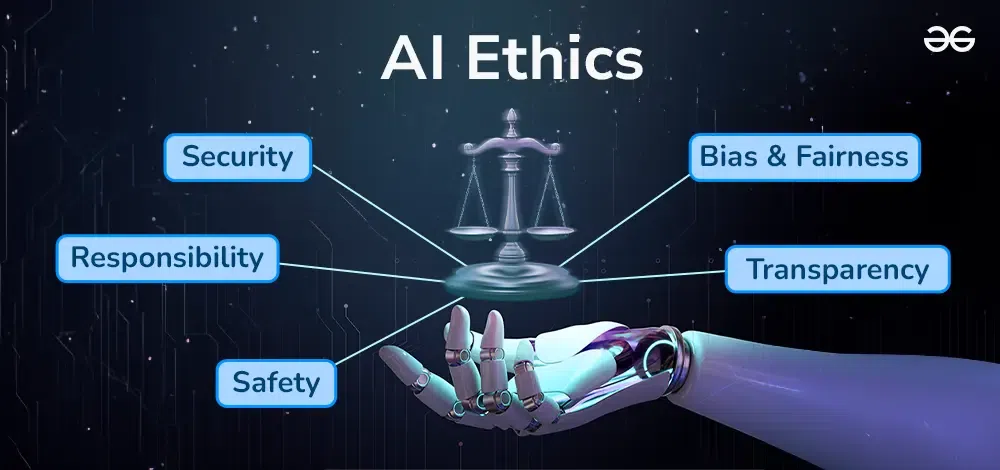Website designed with the B12 website builder. Create your own website today.
Start for free
As Artificial Intelligence (AI) becomes increasingly embedded in our daily lives, from healthcare to hiring processes, the need for ethical AI practices and bias mitigation has never been more critical. AI systems are often trained on vast datasets that can inadvertently reflect societal biases, leading to unfair outcomes in decision-making processes. Whether it’s an algorithm determining loan approvals or facial recognition software used in security, the risk of bias in AI can have real-world consequences, particularly for marginalized communities.
Bias in AI systems typically stems from biased training data, flawed algorithm design, or a lack of diverse representation in the data. For instance, facial recognition technology has been criticized for its reduced accuracy in identifying people of color, leading to false identifications and privacy concerns. Similarly, AI used in recruitment processes may favor certain demographics over others if historical data reflects biased hiring practices. These biases can perpetuate systemic inequalities and erode public trust in AI technologies.
To combat these issues, researchers and developers are focusing on creating Explainable AI (XAI), which allows algorithms to provide transparent explanations for their decisions. This helps users and regulators understand how outcomes are derived and identify potential sources of bias. Additionally, incorporating diverse datasets and implementing bias detection tools during the development process can significantly reduce the risk of discriminatory outcomes. Regular auditing of AI systems for fairness and accuracy is also essential to ensure ethical compliance.
Ethical AI frameworks are being adopted by tech companies and governments worldwide to guide the responsible development and deployment of AI technologies. These frameworks emphasize principles like fairness, accountability, transparency, and inclusivity. For example, AI regulations in the European Union require companies to ensure their AI systems meet strict ethical standards, particularly in high-risk sectors like healthcare and law enforcement.
Despite these efforts, challenges remain. Balancing the need for data privacy with the requirement for diverse datasets is a complex issue, as is ensuring that AI systems remain adaptable to evolving ethical standards. Moreover, as AI continues to advance, new forms of bias may emerge, necessitating ongoing vigilance and innovation in ethical AI practices.
In the future, the successful integration of ethical AI will depend on collaboration between technologists, policymakers, and society at large. By fostering a culture of transparency and accountability, we can build AI systems that are not only powerful and efficient but also fair and trustworthy.